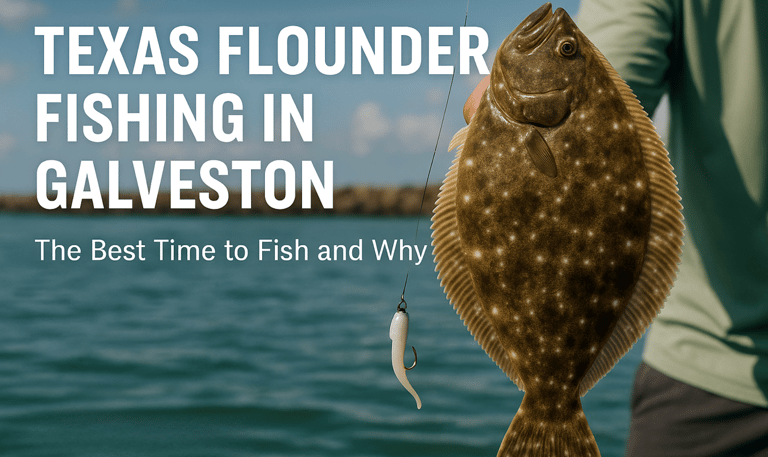Texas Flounder Fishing in Galveston: Best Times, Hotspots, and Proven Tips
If you’re planning a saltwater fishing trip on the Texas Gulf Coast, flounder fishing in Galveston is a must-try experience. Known for their delicious taste and stealthy strikes, southern flounder are one of the most sought-after inshore species in Texas waters.




